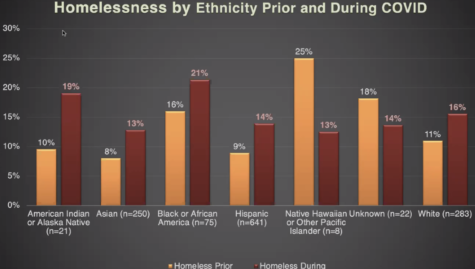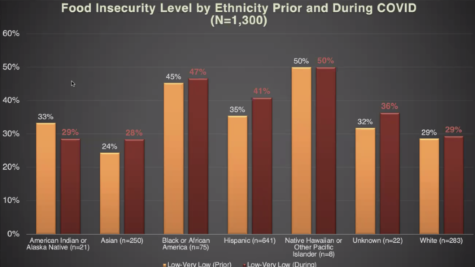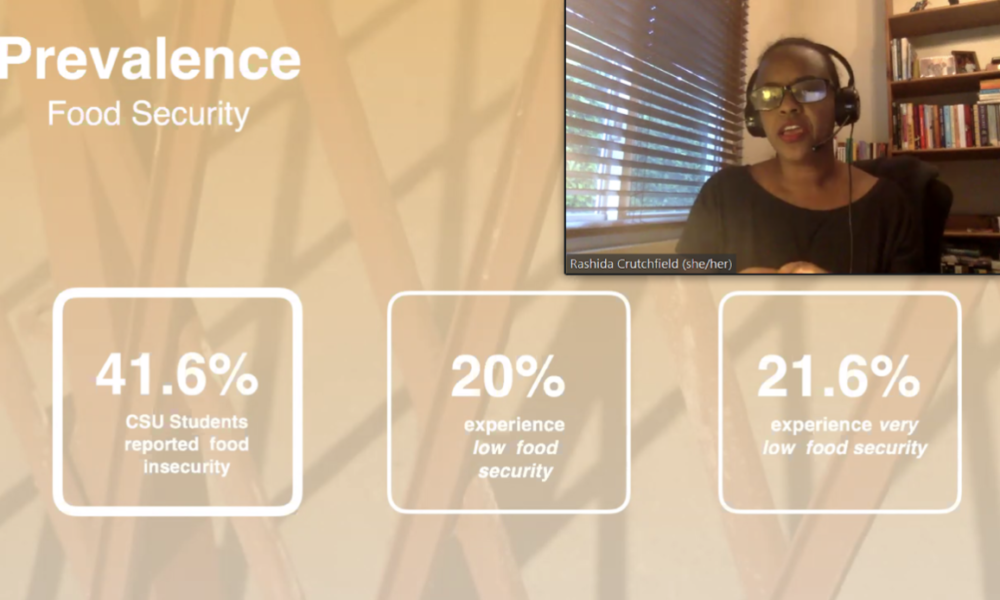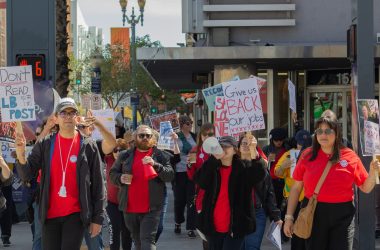In honor of Hunger and Homelessness Awareness Week, Associated Students, Inc. held a virtual event Thursday to discuss how the coronavirus pandemic has impacted California State University students and led to an increase in those facing housing insecurity.
Rashida Crutchfield, an associate professor in the School of Social Work at Long Beach State, along with Jennifer Maguire, an associate professor of social work at Humboldt State University, addressed many of the same concerns they did during Tuesday’s event, which was focused on how the CSU is planning to help students facing homelessness and food insecurity.
“I know a lot of us are experiencing anxiety as we’re coping with the ongoing changing narratives of the world that we’re living in right now,” Crutchfield said. “It’s that much higher for students who also are not clear where their next meals are going to come from or where they’re going to be sleeping.”

Their latest research study, done in July 2020, found that the amount of students facing food insecurity remained about the same as in 2017, though the rates for those facing homelessness increased this year.
In 2017, Crutchfield and Maguire found that 41.6 % of CSU students reported food insecurity. Of that percentage, 20% experienced low food security and the other 21.6% experienced very low food security.
According to the United States Department of Agriculture, low food security means having reduced quality, variety or desirability of food, while very low food security means having multiple disruptions in eating patterns and reduced food intake.
Furthermore in their findings, 11% of CSU students faced some type of housing insecurity, which can include living in tents or on the street, living in cars, living in storage units or never having a fixed place of shelter.
“For our students who are moving from place to place constantly, that is anxiety-raising,” Crutchfield said. “I sometimes will talk to students about their experiences, and they’ll open their calendar, and they’ll show me, ‘On this day I’m going to stay with this person, I still don’t know where I’m going to stay tomorrow.’”

The study also found that students who had higher rates of food insecurity and homelessness also tended to have higher rates of paid work hours.
In 2019, the California State Legislature funded the CSU system with $6.5 million to develop a college-focused rapid rehousing program for students who are experiencing homelessness.
According to data Crutchfield shared during the Zoom meeting, there has been an increase of food insecurity and homelessness among students who are African American, Hispanic and Asian as a result of the COVID-19 pandemic.
Long Beach State has seen an increase in applicants for the Student Emergency Intervention and Wellness Program, which works to assist CSULB’s most at-risk students, such as those who are displaced, food insecure and those experiencing an emergency or crisis.
While the 2018-19 academic year saw just 229 applicants, the 2019-20 academic year had 1,368 students apply for the SEIWP.
“We know that all of our CSU campuses are working creatively and dynamically to try to support our students, but this is a village and we will have to work together to make sure that we continue to address these needs for students,” Crutchfield said.





Pingback: Basic Needs Program assists CSULB students facing housing insecurity - Daily Forty-Niner
When Will CSULB-Associated Students Inc; Student Organizations-Clubs, and Students to be more involve in the growing problems in CSULB Community but in the Long Beach Community and the many Organizations working on Affordable Housing, Homelessness, Food Insecurity. LONG BEACH COMMUNITY AND ORGANIZATIONS HAS BEEN ASKING THESE QUESTIONS FOR YEARS AND STILL ASKING, WHEN??? 👨🎓 👩🎓 👨🏫 👩🏫 👴 👵 👨👩👧👦 😎